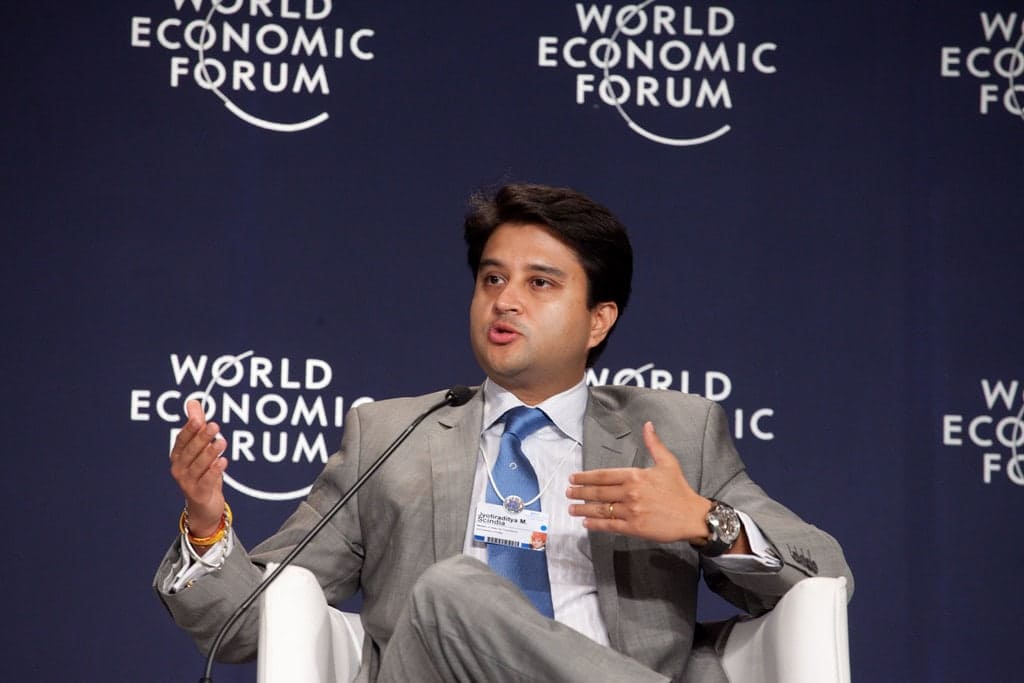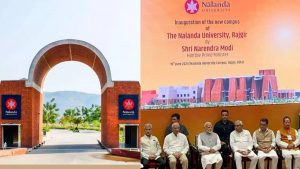
In the diverse tapestry of Indian politics, certain figures emerge not only as leaders but as architects of change. Jyotiraditya Scindia stands as one such towering figure whose journey embodies a blend of legacy, leadership, and contemporary vision. Born into one of India’s most distinguished families, Scindia’s trajectory in politics reflects not just the weight of his ancestry but also his own acumen and commitment to public service.
This essay delves into the life, career, and impact of Jyotiraditya Scindia, exploring his contributions to Indian politics and society at large.
Early Life and Background
Jyotiraditya Madhavrao Scindia was born on January 1, 1971, into the royal Scindia family of Gwalior, known for its rich history and influence in the political landscape of India. His lineage traces back to the Maratha rulers of Gwalior, instilling in him a deep sense of heritage and responsibility from an early age. Scindia received his education from some of the finest institutions, including the Doon School, Harvard University, and Stanford University, where he honed his intellect and leadership skills.
Political Ascent
Scindia’s entry into politics was almost preordained given his family’s legacy and his own ambition to serve the people. In 2002, he officially joined the Indian National Congress (INC), marking the beginning of his political journey. His rise within the party was swift, owing to his charisma, intellect, and dedication to grassroots work. Scindia won his first Lok Sabha election from Guna, Madhya Pradesh, in 2002, and subsequently, he represented the constituency in the 14th, 15th, and 16th Lok Sabhas.
Contributions and Achievements
Scindia’s tenure as a Member of Parliament (MP) was marked by his proactive approach towards governance and development. He championed various causes, including education, healthcare, and infrastructure, with a focus on uplifting the underprivileged sections of society. His efforts to improve the educational infrastructure in rural areas, particularly in his constituency, earned him widespread acclaim.
One of Scindia’s significant contributions was in the realm of aviation. As the Minister of State for Commerce and Industry from 2004 to 2007, he played a pivotal role in shaping policies to liberalize and modernize India’s aviation sector. His efforts were instrumental in fostering growth and competition in the industry, leading to improved connectivity and economic opportunities.
Scindia’s tenure as the Minister of State for Power from 2012 to 2014 showcased his commitment to driving reforms in critical sectors. He spearheaded initiatives to address the challenges plaguing the power sector, focusing on enhancing efficiency, promoting renewable energy, and ensuring equitable access to electricity.
Beyond his ministerial roles, Scindia’s influence within the INC grew steadily, and he emerged as a key strategist and spokesperson for the party. His articulate articulation of policies and issues earned him respect across the political spectrum.
Political Realignment and Leadership
In March 2020, Jyotiraditya Scindia’s decision to quit the Indian National Congress, a party he had been associated with for over two decades, sent shockwaves through the political establishment. His move, along with his supporters, to join the Bharatiya Janata Party (BJP) marked a significant realignment in Madhya Pradesh’s political landscape.
The decision was driven by a myriad of factors, including ideological differences, perceived neglect within the INC, and aspirations for greater political relevance. Scindia’s switch to the BJP not only bolstered the party’s prospects in Madhya Pradesh but also underscored his stature as a leader capable of influencing state politics.
Upon joining the BJP, Scindia was appointed as a Member of the Rajya Sabha, further cementing his position within the party hierarchy. His strategic acumen and mass appeal positioned him as a key asset for the BJP, particularly in central India, where his influence runs deep.
Scindia’s leadership qualities came to the fore during the COVID-19 pandemic when he actively engaged in relief efforts, including the distribution of essential supplies and setting up makeshift hospitals. His hands-on approach and empathy towards those affected by the crisis earned him praise from across the political spectrum.
Conclusion
Jyotiraditya Scindia’s journey in Indian politics exemplifies the intersection of tradition and modernity, heritage, and innovation. From his early days as a scion of the Scindia dynasty to his emergence as a dynamic leader shaping the country’s political landscape, his trajectory reflects a rare blend of legacy, leadership, and vision.
Scindia’s contributions to governance, policymaking, and public service underscore his commitment to the welfare of the people. While his decision to switch parties may have stirred controversy, it also underscores the fluidity of Indian politics and the agency of individual leaders in shaping its course.
As India marches forward on its path of progress and development, leaders like Jyotiraditya Scindia continue to play a pivotal role in steering the nation towards a brighter future. With his unwavering dedication, strategic foresight, and tireless pursuit of excellence, Scindia remains a beacon of hope and inspiration for millions across the country.

